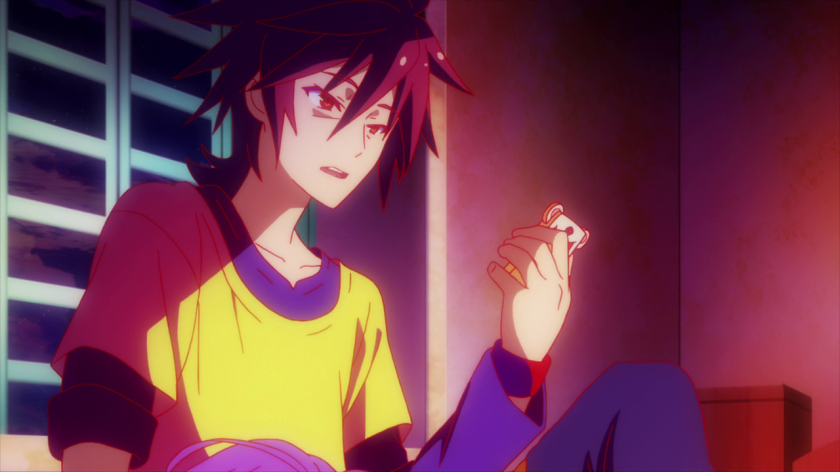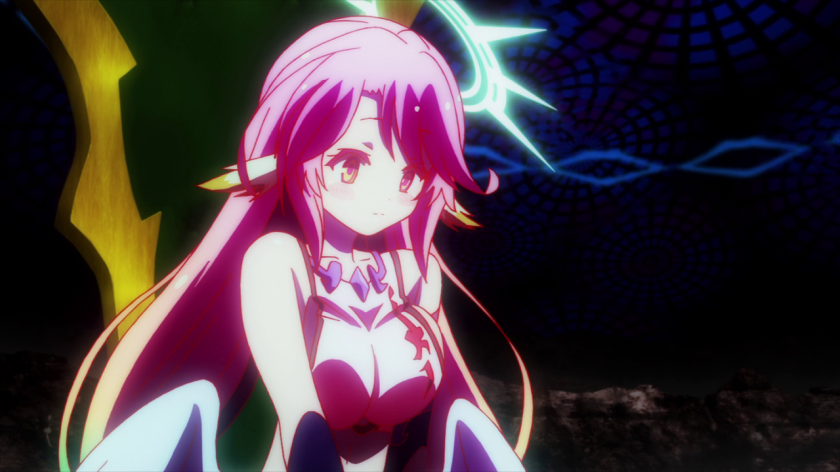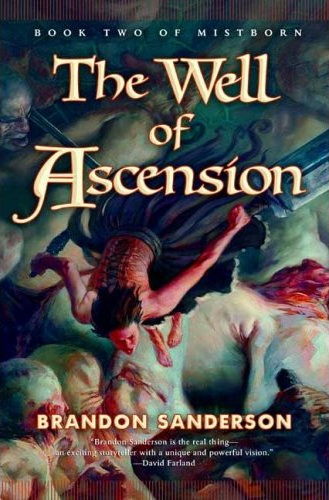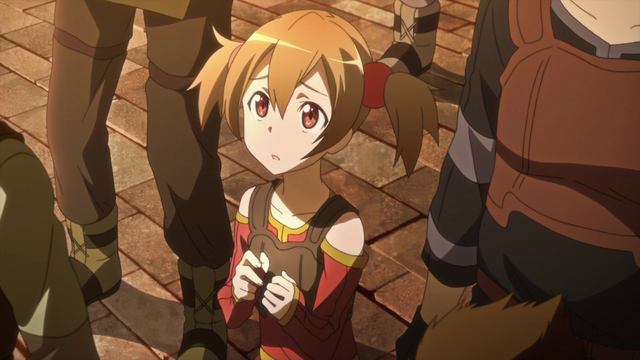
12 episodes of praising Instrumental Reason doesn’t make for good fiction, but it makes it clear why the anime blew up so much. Popularity is never a result of quality, but of fitting in with the zeitgeist, the common biases and worldviews of an age. That’s why Game of Thrones is so popular since it shows a masculinity that’s dark, therefore intelligent instead of the happy-go-lucky nonsense of 80’s action films. As for this anime, its popularity comes from how blatant it is in showing Instrumental Reason to be the supreme reason. Imagine those vegans or marijuana advocates who think that their pet issues would solve all the world’s problems.
Before we discuss why this anime is so bad, let’s clarify what I mean by ‘Instrumental Reason’. I capitalize it because it’s a useful term. To use Charles Taylor’s definition, it is reason which is about efficiancy and problem-solving. It asks how fast we can solve a problem, what is the best way to solve a problem.

Take the case of a busted wheel. When your wheel’s gone bust, you don’t ask what it means, what ramifications it will have on pop culture or on our perception of gender and reality. All that matters is that we change tires as quickly as possible, and that the tire will be good enough to last as long as possible. While there are theories dissecting the meaning behind games, when we play chess we don’t think what the game means. Rather, we asks how we beat the game.
In contrast, there is what I’d call ‘reason of meaning’. By that, you ask what is the nature of things. We don’t just ask how to end racism and poverty, but what exactly is racism and poverty. We’re interested in understanding these issues, defining them, understanding what is bad. Instrumental Reason leads to a lot of money for hi-tech buffons, but it cannot solve all problems since it doesn’t tell you what the problem, or the meaning of things is.

Sora and Shiro are one pair whose world is in Instrumental Reason. While games have meaning, the meaning is related to the mere act of playing. We don’t question whether or not we should win a game and what is the nature of winning chess – the rules decide that. The world of Disboard is a world where every problem isn’t just solved by games, but by Instrumental Reason.
That means it’s a world that doesn’t have any meaning at all. The nature of any problem doesn’t matter, since there will be an arbitrary equation that must solved. Once we solve this equation, the problem ends. The anime tells the story of a megalomaniacal brother-and-sister who beat people in games, gain power and minions and occasionally pay lip-service to morality.

Now, if the series was an examination of such Instrumental Reason, it would’ve been fine. If Instrumental Reason was merely a dominant storytelling tool, then it could still have a decent story. By that, I mean that the show works similar to Death Note and Code Geass. The story moves mainly by challenges facing the characters, and the characters need to solve them. The viewer gains pleasure from trying to solve the riddle along with the characters. However, the meaning of these challenges isn’t important.
Instrumental Reason is so dominant in this anime that these challenges don’t even pretend to have meaning. Death Note may have been a series of riddles, but underneath it there was supposed to be a story about the morality of executing criminals. It failed because it didn’t create situations where we examined the issue, but rather only asked ‘who will win?’. In similar fashion, the only question this anime asks is ‘how will Sora and Shiro win?’.
As a storytelling tool, it’s incredibly boring. It’s essentially watching a staged game. The whole thrill of watching sports is that you don’t know who will win and nothing is decided until the last moment. Stories which use Instrumental Reason make you watch a man playing chess against himself, only with more narrative fluff and (in the case of anime) pretty visuals.

So as a story, this is a complete failure. Really, it’s about nothing. Only near the end it says something about the nature of games, but the whole thing happens in an alternative reality. Once the characters are thrown into it, no mention of the real world. Without admitting there is a real world where not everything is a game, it cannot explore the nature of games. Many throw the word ‘escapist’ around and it’s always debatable how escapist a show is, but can anyone debate this? The characters literally escape the real world so they could play forever.
If the story is an absolute failure, at least it could do well in other aspects. Sadly, it’s all bad except for the art. The art is easily some of anime’s best. It’s such a shame that a highlight in anime art is glued to a horrible story. Look at those vibrant colors, how every scene doesn’t have so much a depth of detail but a depth of color. It creates the feeling of a truly fantastical world. It applies to character design, too. While the series is shameless in fanservice, each character gets its unique touch, unique eye shapes and hairstyles. Shiro isn’t the best design, but her design is a good case in point. Her hair isn’t just long but has a distinct flow to it. Jibril is another excellent case. For a character who floats around half-naked, they sure thought about a lot of unique touches – the asymmetrical gloves, the gardient in the hair.

Sadly, this is where the positives end. Some of the characters are good, but they need a different setting and a different storytelling method. Stephanie Dola could’ve been a light in the dark, a contrast to the world. Her emotional reaction actually could’ve added some ‘reason of meaning’, show us a character who thinks about other things besides winning. Too bad her role is to be slapped around, sexually humiliated and generally used as a tool. If so far you were convinced my rantings about ‘Instrumental Reason’ was just cranking about, here’s the final nail. The anime takes its one character who has a different view than constantly puts it down.
Sora is tied to this problem, and to the misogyny problem. He’s a 20th century masculine stereotype. Writing about transformation of masculinity in fiction is incomplete without him. We see how once the manly hero packed guns, now he’s shagging women and is being a conniving, selfish asshole. What defines Sora isn’t heroism like those in the 80’s movies, but his pure ‘Instrumental Reason’. All that matters to him is winning, all he can think about is winning.

Occasionally he displays some moral code about being nice to those he lose. We never see the general ethics that guide him, though. Since he’s comfortable using everyone as pieces, he’s more like a Wolf of Wall Street, doing everything to win and using people as means to an end. It fits with the zeitgeist. Go to school, and they will teach you how the only important thing is making loads of money. Whatever technology you invent, whatever content you produce, it doesn’t matter so long as you get money. No surprise our politicians are so corrupt.

Using people as means, besides pissing off Kant also gives the whole anime a strong misogynistic bent. You don’t just see women in sexy situations, but often humiliating situations. Stephanie gets the most of it. An episode is dedicated to treating her like an animal only to teach her a lesson. He also takes pictures of her nude without consent and there’s the whole ‘laughing at flat women’ thing. I don’t see anything funny about humiliating a girl, taking nude pictures of her and generally framing her as inferior and dumb. Worst of all, we’re meant to cheer for Sora and the characters eventually come to like him. I don’t see how his rise to power demanded treating Dola so awfully.
Contrary to the creator’s idea, I would rather have a beer with Stephanie Dola and not just because she’s a woman. No Game No Life is pure escapist fantasy for the hi-tech age. In an age where we want to just solve problems instead of thinking about their nature, it’s the ideal anime. I’m reminded of a story where some government officials asked how to lower the amount of poor people. Onc offered to change the definition to the American definitions, and then there will be less poor people on the count. Notice how the numbers change but no one asks what exactly poverty is and what’s the actual problem. It’s a comfortable mindset, but we don’t live in Disboard. Our world isn’t clean and ordered where each problems have clear laws. In this world, you have to ask what is the problem, what it means and the whole shebang. Also, you can’t go around treating women like Sora treats Stephanie. Somebody might come and get all 80’s Action Movie on your ass.
1.5 misogynists out of 5










